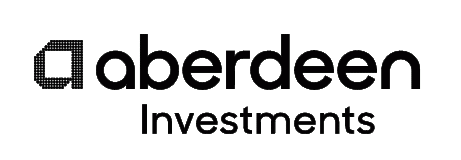Valuable feedback
Getting feedback – and responding to it – is hugely important for advisers. The more feedback you receive, the better you will understand your clients; in turn, this provides you with valuable opportunities to adjust your business plan. Ultimately, this should mean happier clients, more referrals, and higher profits.
- Feedback can be good or bad… but it’s important to respond
- Acknowledge any feedback, express thanks for any praise, and address any issues swiftly
- A happy client is likely to share their positive experience with three other people
Research has shown that, for every customer who complains to you, there could be as many as 30 more who have simply left and never come back. On top of that, each one of those 30 has told an average of 11 others about their problem. That means for every piece of negative feedback a business actually receives, there could be more than 300 other individuals busy bad-mouthing your business.
Ongoing feedback, therefore, allows you to address problems before they build. Unchecked, dissatisfaction can grow bigger and bigger without you realising – until, of course, it is too late.
It can also help improve your ability to attract new clients: every happy client is likely to tell some three other people – and thsse free recommendations are the type of advertising you really cannot buy. When someone is happy, they may offer an endorsement you can use with other potential clients.
Your aim, therefore, should be to generate as much feedback as you can from as many different clients as you can. As Sir Alan Sugar says, business is all about working out what clients want from you and then finding a profitable way to deliver it. Feedback helps with the first part of this equation enormously.
HANDLE WITH CARE
Before you start fishing for lots of comments, however, there are some fundamental things to consider about how you are going to deal with any feedback you do receive:
- Responsibility: Anyone who makes a comment about you has taken time to do so. It’s worth acknowledging this, thanking them for it and then listening with care to what they have to say. Every comment has a context and, good or bad, you need to be aware of it so you can decide whether it was a one-off or sign of something bigger. You also need to work out whether you can use what you are being told to learn something about the service you are providing. All your staff therefore also need to know how to speak to people. The person calling or emailing should aim to obtain 95% of what they need from their first point of contact. Allow everyone to make certain decisions to facilitate this wherever possible.
- Consistency: This comes down to a combination of making certain you have processes that ensure feedback is acted upon within a reasonable time and that all staff are then made aware of what those processes are. You could start small – for example, set up a briefing session, open up the agenda and see what feedback flows from them. Ask staff about their experiences of speaking with clients. How many clients make passing comments about the ability of individuals or the performance of the business within conversations on other issues? Give your staff guidelines to work with so these comments can be identified, picked up and any negative ones followed up to reduce the chances of them cropping up again. Finally, if and when you start to receive a lot of feedback, you might even draft some core letter or email text so that relevant members of staff have a consistent foundation on which to build their more personal responses.
- Write it down: Whatever feedback you receive – even those small passing comments on the phone – write them down and file them in one place. During quieter moments you can then go back through these comments and see if any trends emerge. Are any services going down particularly well? Is anything being consistently misunderstood? Does someone in your organisation need additional support – or even a bonus?
- Formalise the loop: Like your initial briefing session, the results of your efforts to generate feedback could become a regular part of your business-planning process. Get staff together, discuss the issues and allow them to come up with ideas. You could even incentivise them – from formally acknowledging a job well done through to actual financial incentives for ideas that lead to new or improved business opportunities and processes.
- Ask for more: Once you are confident you can deal with the feedback you have, it is time to start seeking it out from a wider audience. Granted, only the very happy or the very unhappy will generally respond to those ‘how did we do?’ surveys – they are the only ones motivated enough to want to make contact – however, do not let this put you off doing it. In most cases, the mere fact you bothered to ask is enough to raise client satisfaction levels – and in the very worst case, you will at least allow someone to get something off their chest before they do too much damage as a result of their frustrations.
- Polls and surveys: the quickest ways to generate feedback are to ask specific questions of your website visitors and/or short follow-up five-question surveys as part of your new business process. For the latter, keep most of the questions closed, specific and easy to answer but with one final open question at the end for ‘comments’.
- Annual questionnaires: these are longer than your regular surveys and will require an incentive but the scope – and therefore the results – can be much wider. They should include not only how people find you but also what interests they have in other existing or potential services you are considering. Done properly, this will combine market research and service-level feedback in one simple exercise.
- Peer reviews: slightly more controversial perhaps but essentially these are ratings and comments about specific services you offer or articles on your website you have written. Ratings are easy to set up on most of today’s website platforms and the results can both help you highlight ‘good’ content to more visitors and amend or remove content that does not fare so well under such a spotlight.
- Forums: You need to check what’s being said about you, if anything on third party sites. Trustpilot can be a useful tool. You can request feedback either on your own site or via Facebook or LinkedIn, they allow you to tackle queries more publicly and start asking questions back about how clients are feeling. If the worst comes to the worst – and it rarely does when you have registration requested up front – you just delete a troublemaker and/or report them to the network concerned. Tracking technology can help you monitor traffic to your website to tell you if it’s come from a single domain. Go take a look – and if a client has praised you in a forum, tell them you noticed and say thanks. Similarly, if a new client arrives out of the blue, ask if anyone referred them.
VALUABLE ASSET
Feedback is one of the most valuable assets you can receive – and should always be treated as such. Don’t fear negative comments – no business ever does everything perfectly and you should be thankful someone is taking the time to help you put things right.
Ultimately, the more interaction you have with clients, the better you will understand what they need. And, if you know what they need, you can plan your business better to meet that need and the resulting transparency will allow your clients to trust you more. That means greater loyalty, more recommendations, lower attrition – and greater profits.
Latest News
UPCOMING EVENTS
Get In Touch
Find Us On Map
Weekly Market Updates
Latest Business News
Keep up to date with financial market notifications & advice to further your business opportunities





























